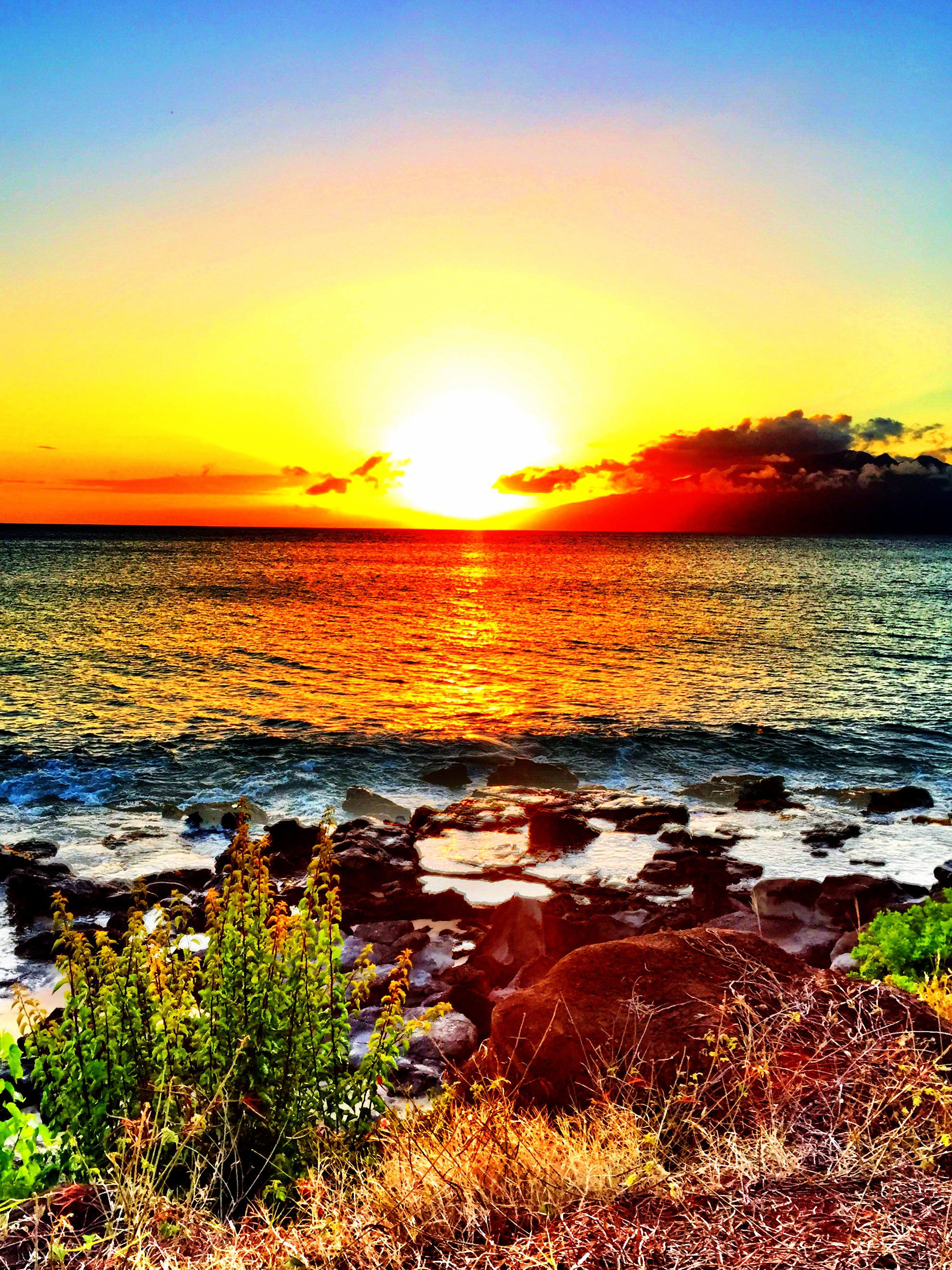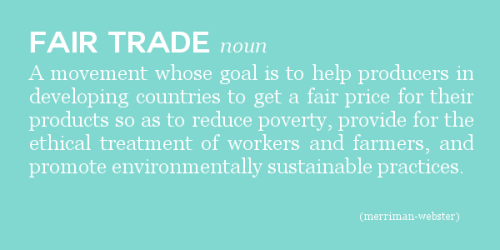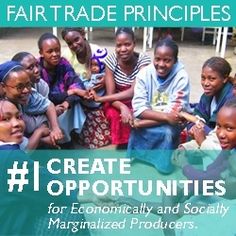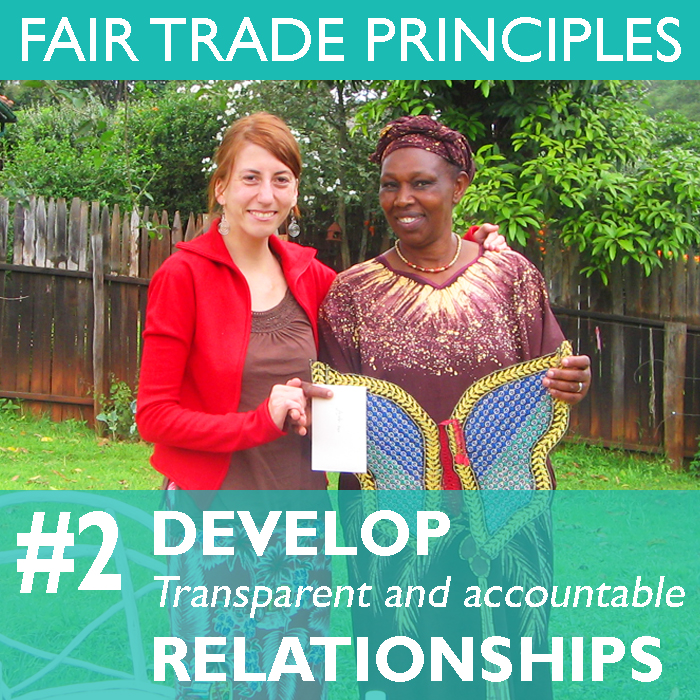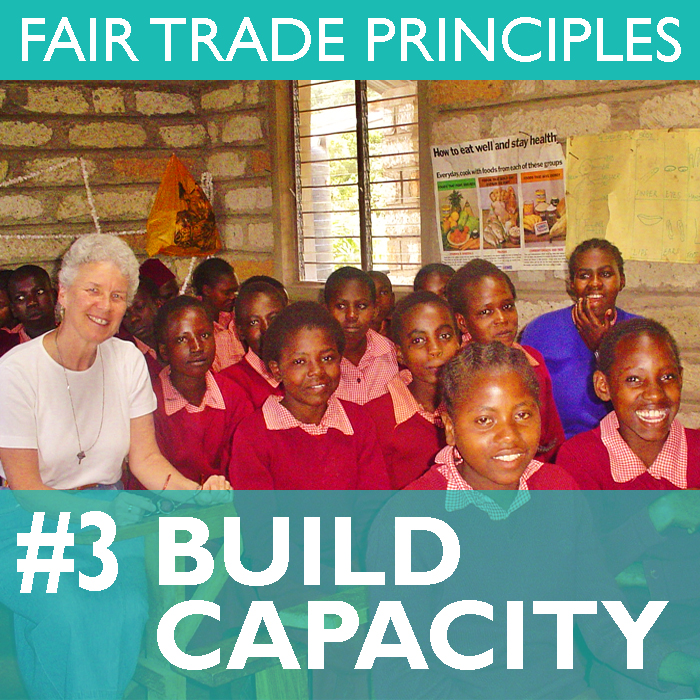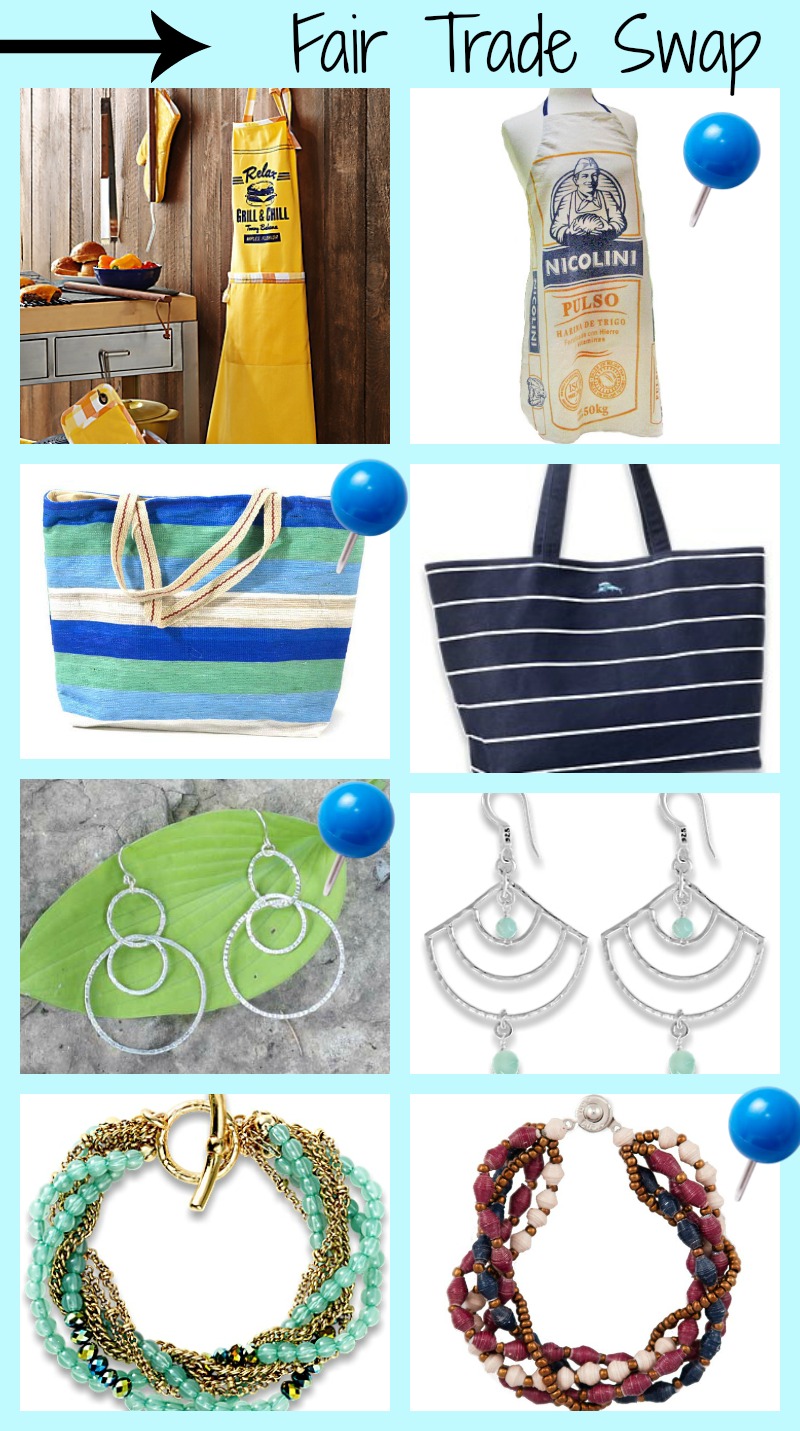
If every American made just ONE Fair Trade purchase a year, it would lift ONE MILLION families out of poverty.
That really makes you think, doesn’t it? We hear the words “fair trade,” “ethical shopping,” and “social responsibility” a lot these days. But sometimes what they actually mean gets lost in the shuffle. Here’s a breakdown to help:
Fair Trade is an organized social movement and market-based approach that aims to create greater equity and partnership in the international trading system by:
•Creating opportunities for economically and socially marginalized producers: Fair Trade is a strategy for poverty alleviation & sustainable development.
•Developing transparent and accountable working relationships: Fair Trade involves relationships that are open, fair, consistent & respectful.
•Building long-term trade relationships: Fair Trade is a means to develop producers’ independence.
•Paying a fair and living wage in the local context: Fair Trade empowers producers to set prices within the framework of the true costs of labor time, materials, sustainable growth & related factors.
•Providing healthy and safe working conditions within the local context: Fair Trade means a safe & healthy working environment free of forced labor.
•Ensuring the rights of children: Fair Trade means that all children have the right to security, education & play.
•Engaging in environmentally sustainable practices: Fair Trade seeks to offer current generations the ability to meet their needs without compromising the ability of future generations to meet their own needs.
•Respecting cultural identity: Fair Trade celebrates the cultural diversity of communities, while seeking to create positive & equitable change.
•Promoting the principles of Fair Trade: Fair Trade encourages an understanding by all participants of their role in world trade.
What does fair trade mean?
The word “fair” can mean a lot of different things to different people. Fair Trade is about more than just paying a fair wage, it is based on trading partnerships that give reciprocal benefits and mutual respect. Wages paid to producers reflect the work they do, workers rights are upheld, and healthy and safe working conditions are enforced.
By approaching global trade as a relationship that has the ability to create change, Fair Trade offers exploited producers dignity, respect, and a means to a fair wage. Beyond providing a living wage to marginalized producers, revenues from fair trade cooperatives are invested in global communities to support development projects like clean water wells and clinics that are able to provide health care for thousands of families.
Fair Trade uses an ethical system of exchange to empower producers to create sustainable and positive change for their families. When we as consumers choose fair trade products over products produced in a market where workers are often exploited and left without resources to provides for their families, we are choosing to shop for change! When we choose products from Fair Trade Organizations, we can be assured that children’s school fees are paid; nutritional needs met; health care costs are covered; the poor – especially women – are empowered; the environmental impact of production, sourcing, and transport is mitigated to the fullest extent possible; and, so much more.
What are fair trade products?
Consumers can choose from a myriad of products, including fair trade jewelry, crafts, home decor, housewares, handbags, personal accessories, clothing, toys, and more. Fair trade coffee, tea, and chocolate are also widely available, if not, ask your local grocer to carry fair trade certified products.
Do fair trade goods cost more than comparable non-fair trade goods?
Generally, fair trade goods do not cost more than other goods, because fair trade organizations work directly with producers – cutting out middlemen who raise the price along the way according to traditional trading practices. In the fair trade market, the cost to consumers typically remains the same while a higher percentage of the price is returned to the artisans who make each product.
Does fair trade make a difference?
In producer communities, schools are built, wells constructed, children attend school, and other signs clearly indicate that the income generated by fair trade sales positively resonates in a community. In intangible ways, one can note the impact of fair trade, as well. Cultural techniques are revived; women become valued members of their societies; alternative production methods preserve biodiversity; small and medium sized enterprises in the developing world increase their capacity. Through this and other evidence we know that lives have been positively changed, because of fair trade.
What can you do to support fair trade?
Shop fair trade, learn more, and spread the word. Individuals can support fair trade by educating their friends and family about the fair trade options available, by buying fair trade gifts, bringing fair trade products into their home, office, church, school or other group, by asking local stores to carry fair trade products, and much more.
Since 2000, fair trade sales and consumer awareness have increased tremendously, as the range of fair trade products have also expanded. In 2002, the first World Fair Trade Day was celebrated to heighten consumer awareness and to strengthen connections among fair traders and ethical consumers around the globe. In 2009, the Fair Trade Foundation reported that total fair trade sales passed $1.1 billion in the US alone.
While this is wonderful news, and we continue to see growth for US sales of fair trade, so much more needs to be done.
•According to the World Bank, an estimated 2.7 billion people in the world exist on less than $2/day.
•According to a 2000 US State Department report, 15,000 children aged 9 to 12, in the Ivory Coast alone, have been sold into forced labor on conventional cotton, coffee, and cocoa plantations.
•In addition, the International Institute of Tropical Agriculture reported 284,000 children in the Ivory Coast, Ghana, Nigeria, and Cameroon are working in hazardous tasks on conventional cocoa farms.
There are over 7.5 million individuals directly benefiting from Fair Trade production today, and we as consumers need to provide a voice for thousands of others that need our help. Please help us empower and protect marginalized producers around the globe by becoming a globally conscious shopper.
If every American made just ONE fair trade purchase a year, it would lift ONE million families out of poverty. It is because of the efforts of entrepreneurs, non-governmental organizations, and people like you that we are able to make a difference. By choosing fair trade products, you are not only accessing beautiful handmade goods, you are making a difference in the lives of the people who grow and craft each product. Shop fair. Give Fair.
Fair Trade Links
For more information about Fair Trade and the principles we adhere to, please visit the following websites:
Fair Trade Federation
The Fair Trade Federation is the trade association that strengthens and promotes North American organizations fully committed to Fair Trade.
Fair Trade USA
Fair Trade USA, formerly Transfair USA, is one of twenty members of Fairtrade Labelling Organizations International, and the only third-party certifier of Fair Trade products in the United States. Fair Trade USA audits and certifies transactions between US companies and their international suppliers to guarantee that the farmers and workers producing Fair Trade Certified goods are paid fair prices and wages, work in safe conditions, protect the environment and receive community development funds to empower and uplift their communities.
Fair Trade Resource Network
Fair Trade Resource Network is an information hub designed to grow the fair trade movement.
Other fair trade friends, supporters and resources:
Green America
Green America is a national nonprofit consumer organization, promoting environmental sustainability, social justice, and economic justice through marketplace strategies including green living, responsible shopping, fair trade, green business, corporate social responsibility, and socially responsible investing — for consumers, businesses, workers, investors, and everyone.
TreeHugger
Partial to a modern aesthetic, it shares sustainable design, green news and solutions.
Mother Nature Network
MNN is the leading resource for daily environmental news, green commentary and simple steps to save money, stay healthy, and support the planet.
Global Exchange
Shows actions and how to accomplish change on such far ranging issues as curtailing sweatshop practices to improving the environment.
I hope this helps shed a little light on the fair trade movement and what it means for us!
XO,
Casey
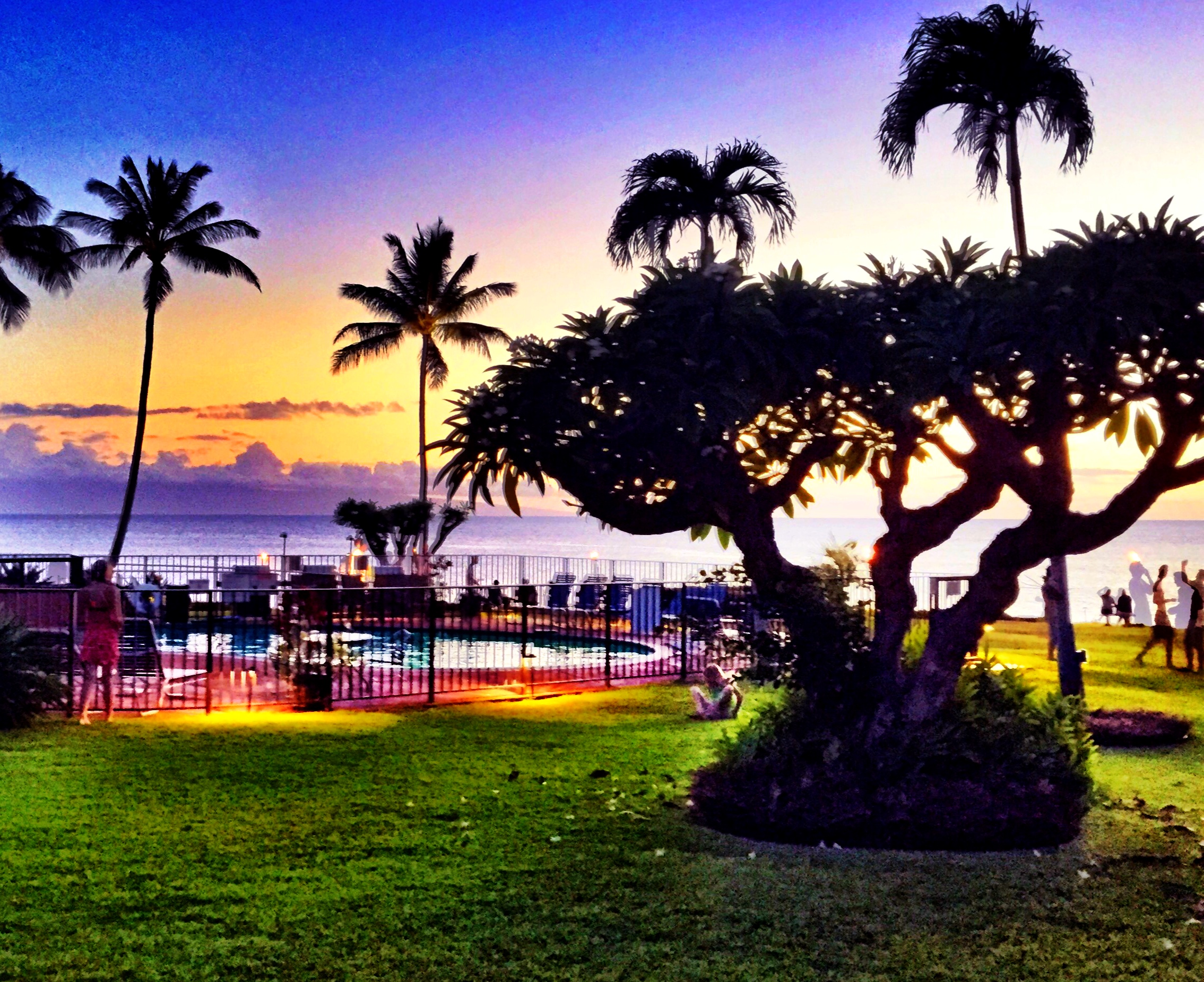
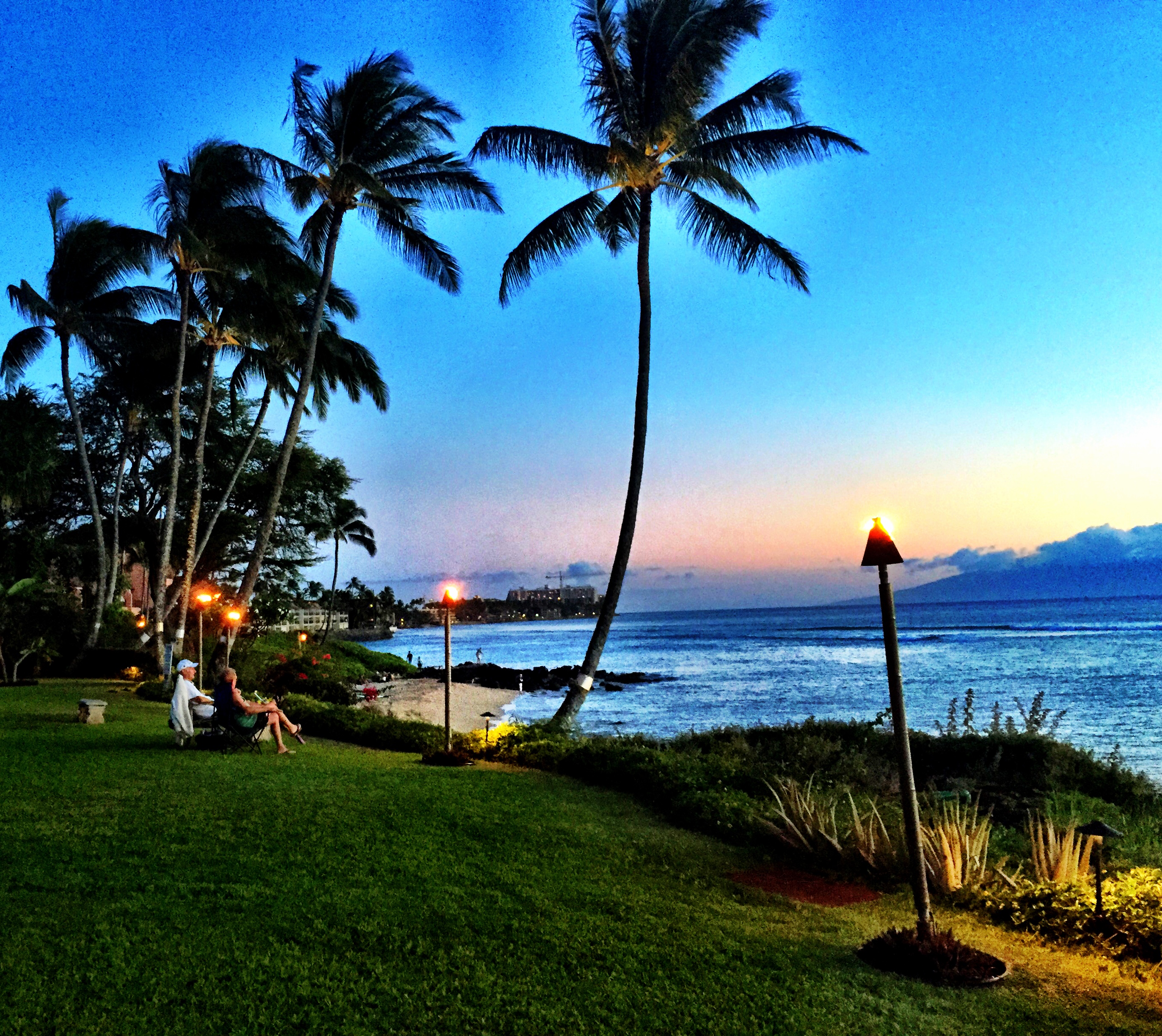
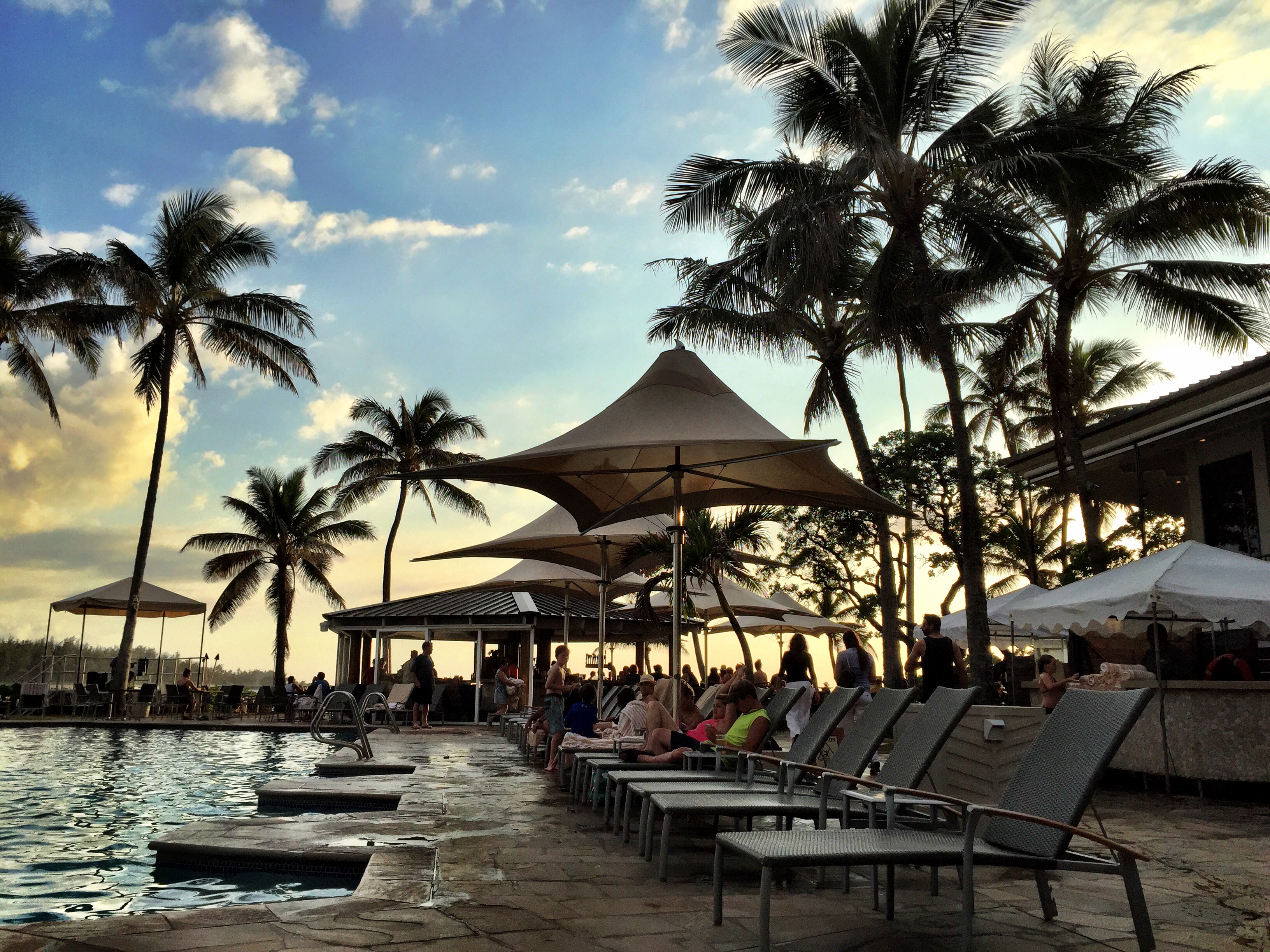
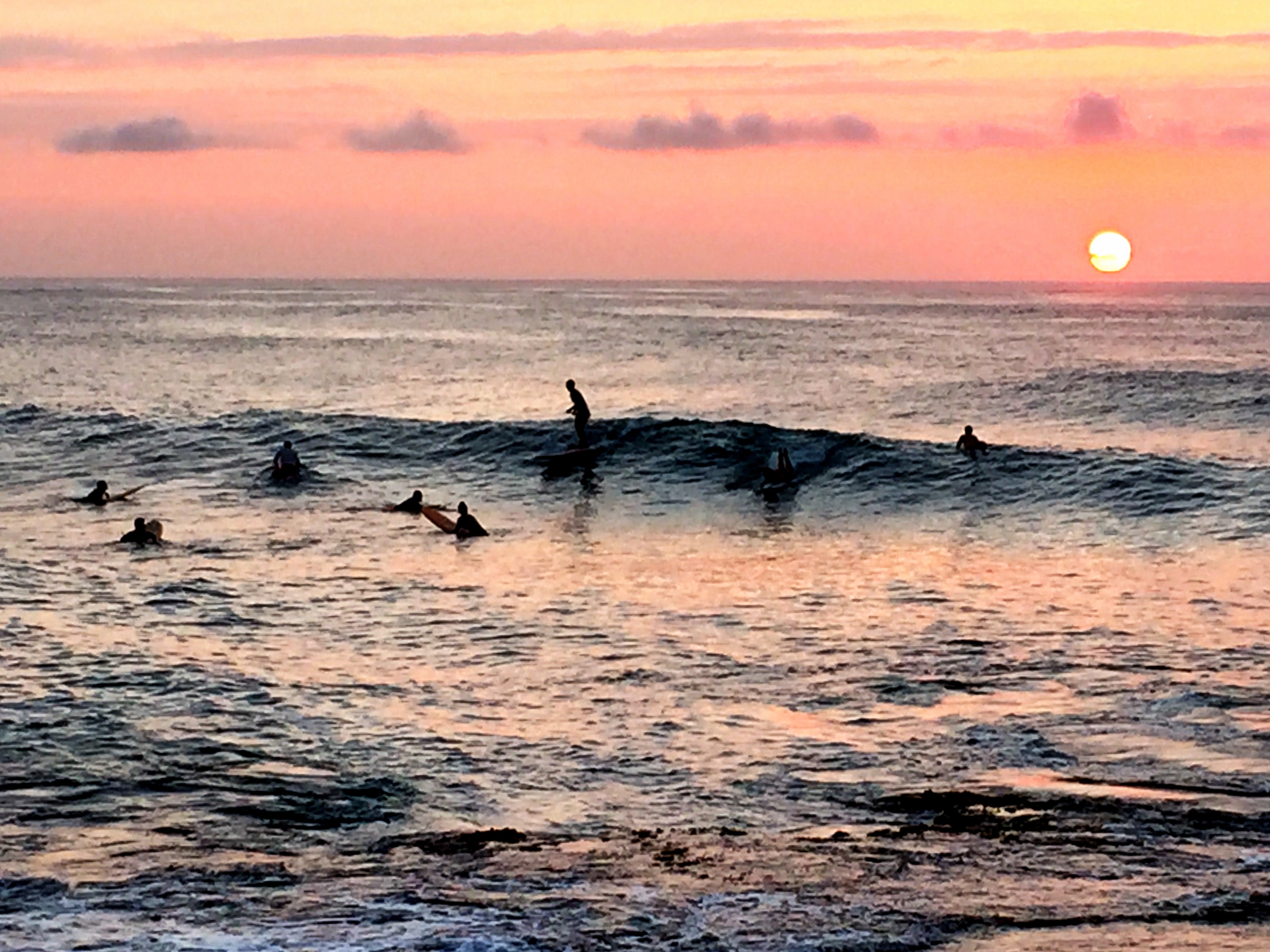
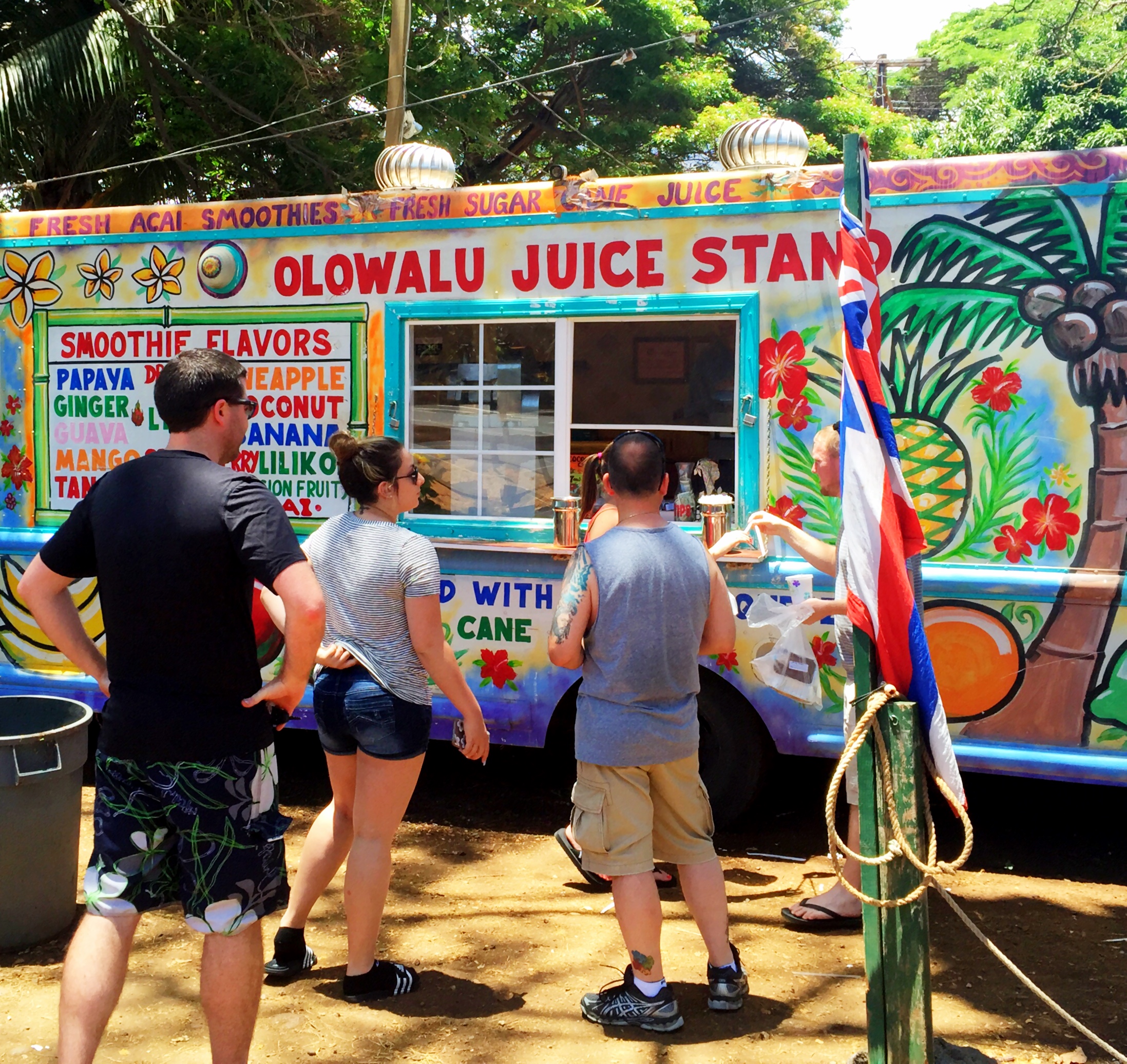 (The fresh juices and ALL THE FOOD were pretty unreal, too!)
(The fresh juices and ALL THE FOOD were pretty unreal, too!)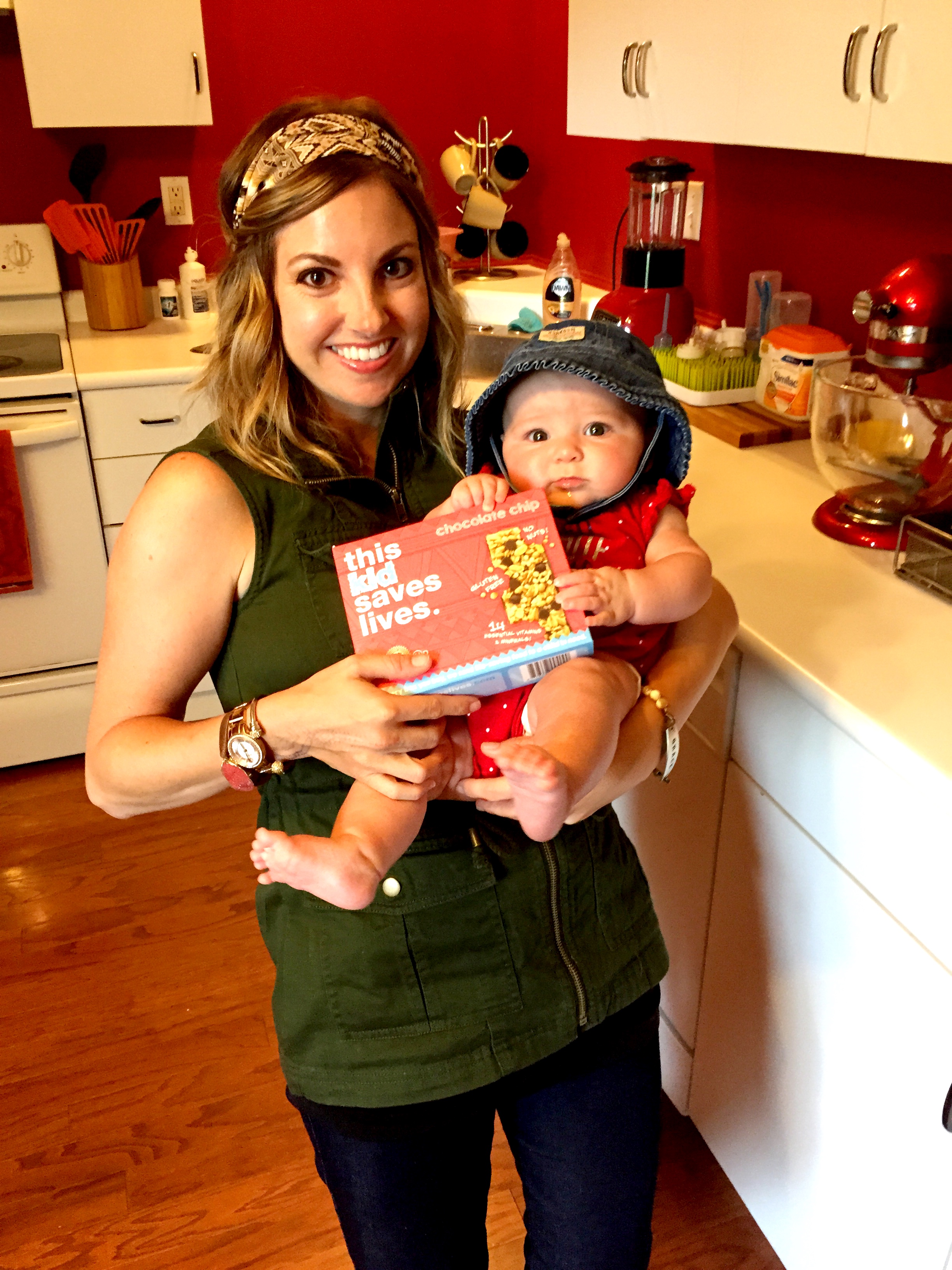 (Don’t worry, I’m not feeding her the granola bars, even though her little rolls may suggest I am. #thiskidhasthunderthighs)
(Don’t worry, I’m not feeding her the granola bars, even though her little rolls may suggest I am. #thiskidhasthunderthighs)


